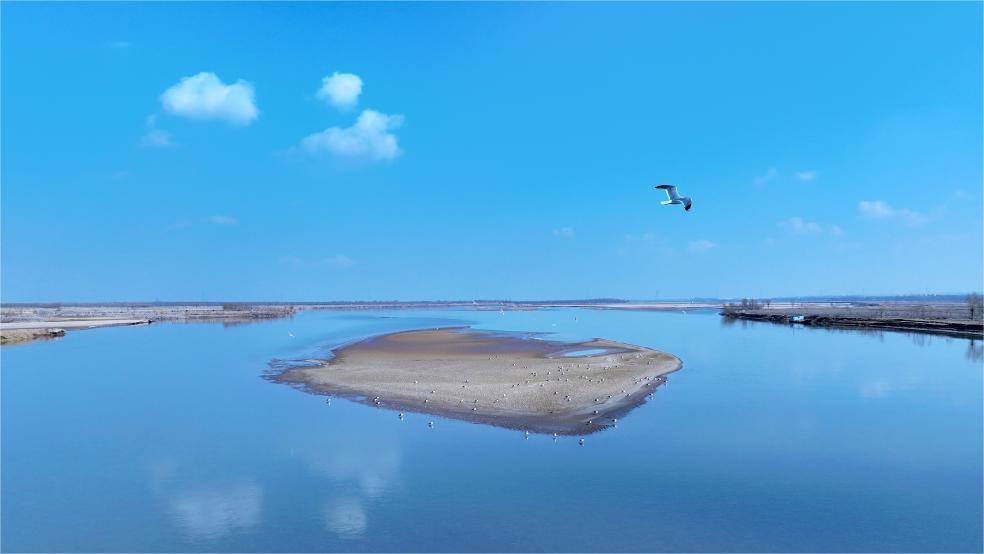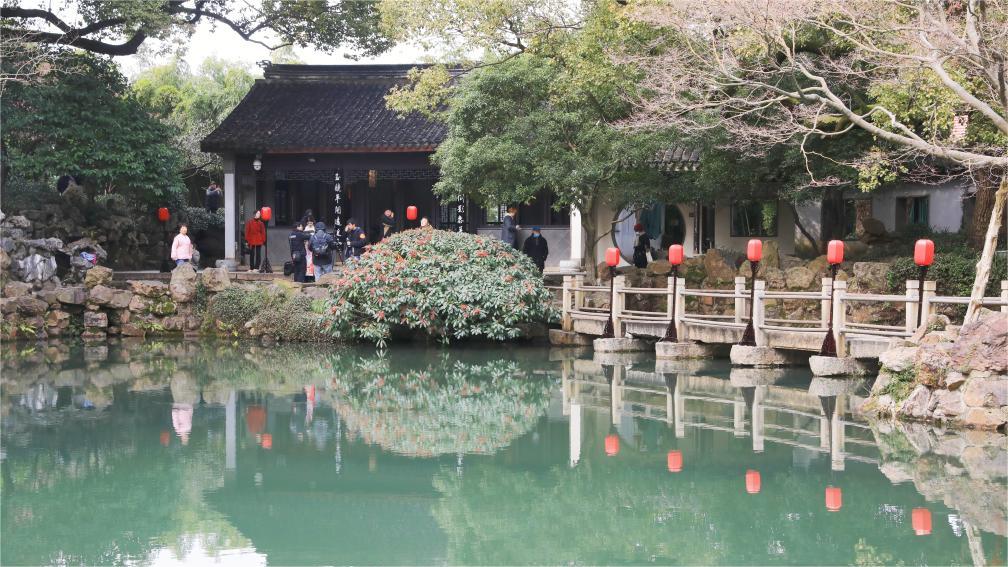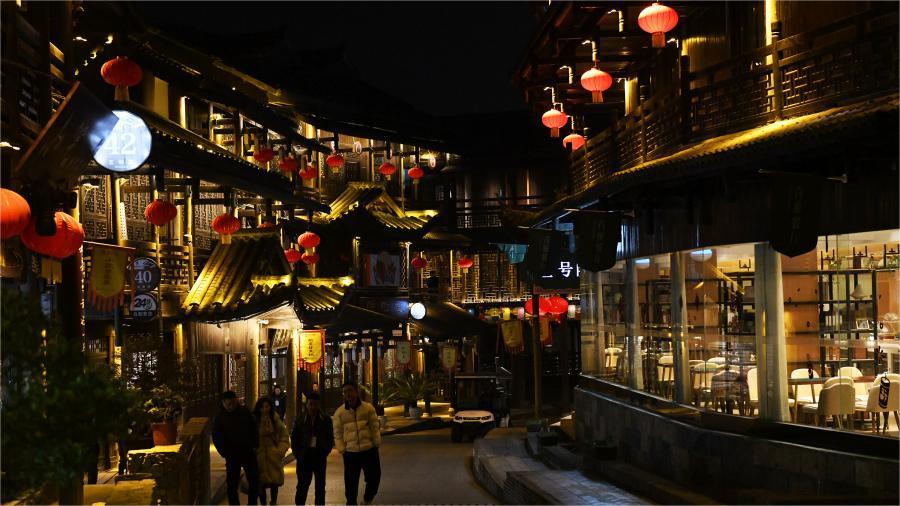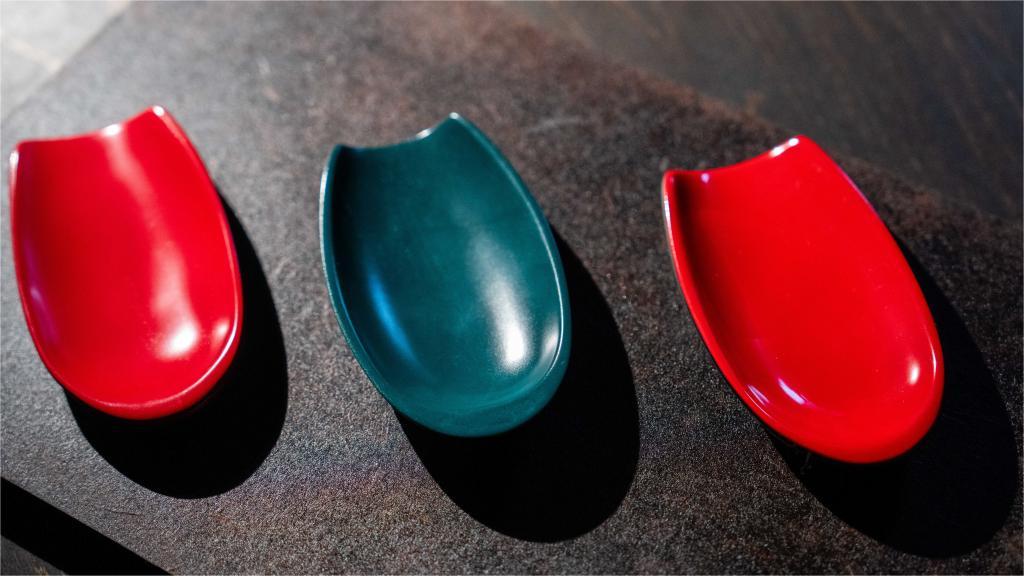High-end Western fine dining finds ingredients in rural China
JINAN/CHENGDU, March 6 (Xinhua) -- More and more chefs serving fine Western cuisine in Chinese restaurants have turned to production bases in rural areas of the country for the upmarket ingredients needed for their menus, such as delectable foie gras and caviar.
It may not conform to the stereotype that premium foie gras tends to come from developed countries in the West, but, since China joined the WTO in 2001, the reality is that goose livers produced in Linqu County, east China's Shandong Province, have been sourced to tickle the taste buds of gastronomes in high-end Western fine dining, revealed Ma Lijun, general manager of Shandong Chunguan Food Co., Ltd.
Originating from Landes, France, the fatty but juicy goose livers are now a real-world "golden goose" for local farmers in Linqu. Over the decades since Landes geese were first introduced to the county in the 1980s, about 70 percent of China's foie gras has come from the county nestled among the towering Yimeng Mountains, according to Liu Guoqiang, head of the county's animal husbandry development center.
Having signed contracts with chain supermarket giants for years, Linqu now has a steady annual output of some 5,000 tonnes of goose livers worth more than 1 billion yuan (about 140 million U.S. dollars), which are sold across the country.
Shandong, a major agriculture production base in China, also saw its exports of animal husbandry products top 800 million yuan in 2023, suggesting a burgeoning momentum.
Policy support from the local government and efforts of major enterprises over the years have combined to grow the goose liver sector into one of Linqu's pillar industries. Linqu's Jiangyu Township alone has six specialized goose breeding farms and 78 specialized goose farmer households, with more than 3,000 members involved in the relevant cooperatives, helping generate 200 million yuan annually for the local farmers, said Ma Xiaowen, Party secretary of the township.
"Nowadays, our excellent breeding environment and highly nutritious corn feed allow Linqu foie gras to boast an unsaturated fatty acid content higher than other goose liver varieties, which secures both its high nutritional value and good taste," Ma Lijun said.
Likewise, caviar made of sturgeon eggs in the mountainous Tianquan County of southwest China's Sichuan Province is claimed to contribute 12 out of every 100 grams of the world's total caviar.
Imported produce has long been hailed as very necessary for preparing high-end cuisine, but now caviar is also known as a local specialty by many in China.
"Every day, I need to verify that about 100 sturgeons are qualified to lay eggs using professional instruments, so that they are proven healthy enough to generate high-quality caviar," said Luo Wei, an associate technician in a local sturgeon breeding base in Tianquan County of the city of Ya'an.
In the workshop of Sichuan Runzhao Fishery Co., Ltd., which Luo works for, the caviar production process is running like clockwork. "The fish eggs that have just been extracted are first hand-selected by manpower to weed out those that are damaged, bloodstained or less than 3 millimeters in diameter," said Li Jun, chairman of the company.
"They have to complete 17 stringent procedures including egg selection, mixing with salt, and jar filling in a mere 15 minutes. Once this production time limit is exceeded, the eggs may become moldy due to contact with too many microorganisms," explained Li.
"To ensure product quality, there are separate air and water systems in the workshop. Staff need to carry out meticulous disinfection work for two hours before the start of their operation to safeguard the clean and sterile environment, which is kept at a constant temperature," Li added.
Caviar made by this company has been green-lighted by the European Union and the U.S. Food and Drug Administration (FDA) and exported to more than 30 countries and regions including the United States, Germany, France, Italy, and Belgium.
Notably, the sturgeon demands high quality in terms of its aquaculture environment, but this is not a big problem for the county.
The city of Ya'an has enjoyed steady and good water quality for many years, the best in Sichuan Province and among the best nationwide. Local water there, resulting from melted alpine snow and ice, has proven to be ideal for cold water fish like the delicate and valuable sturgeon, according to Li.
Research institutes and colleges have also contributed to the localized production of Western cuisine ingredients. Breakthroughs like hybrid breeding technologies for sturgeon and new processing technologies for caviar and other cold-water fish products have boosted the company's production output from some 20 tonnes of caviar in 2019 to 60 tonnes last year.
Premium caviar made by Runzhao can sell for up to over 30 yuan per gram. The company is also looking forward to selling sturgeon meat in the domestic market in the near future, especially to school canteens, where minors are expected to be offered food with rich nutrition during their golden years of physical development, said Li.
Currently, Tianquan County boasts Sichuan's biggest cold-water fish breeding base and processing center for caviar, equipped with complete industrial chains. It is also eyeing the bigger picture of integrated development of primary, secondary and tertiary industries and striving to build itself into a national aquatic products and modern agriculture industrial park, said Wei Min, head of the county's agricultural industry development and technical service center.
Photos
Related Stories
Copyright © 2024 People's Daily Online. All Rights Reserved.









